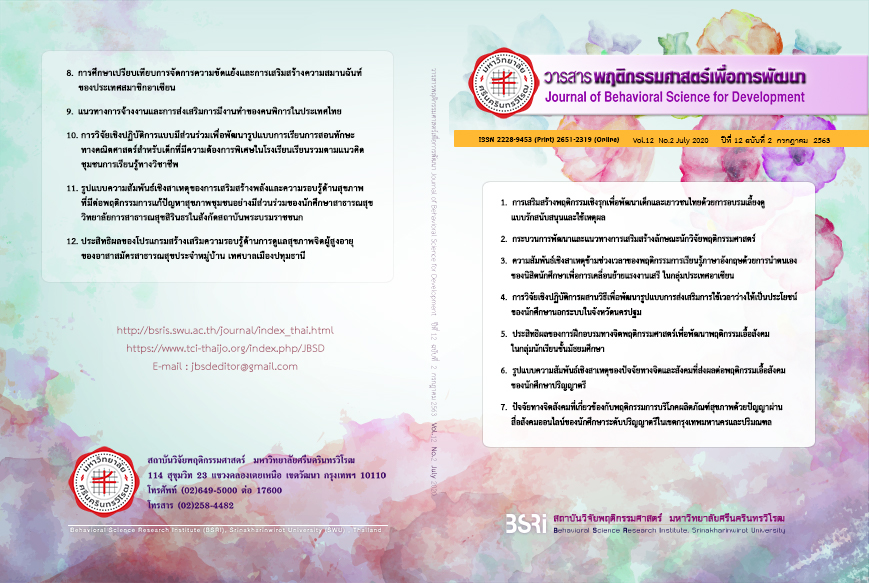Comparative Study on Conflict Management and Reconciliation of ASEAN Countries
Keywords:
การจัดการความขัดแย้ง, การเสริมสร้างความสมานฉันท์, อาเซียน, กระบวนการยุติธรรมทางเลือกAbstract
การศึกษาเปรียบเทียบการจัดการความขัดแย้งและการเสริมสร้างความสมานฉันท์ของประเทศสมาชิกอาเซียนมีวัตถุประสงค์เพื่อศึกษาข้อมูลพื้นฐานของรูปแบบการจัดการความขัดแย้งและการเสริมสร้างความสมานฉันท์ในแต่ละขั้นตอนของกระบวนการยุติธรรม รวมถึงกฎหมายที่เกี่ยวข้องในการลดความเหลื่อมล้ำของประชาชนในสังคม ผลการวิจัยพบว่า รูปแบบการจัดการความขัดแย้งและการสร้างความสมานฉันท์ของประเทศสมาชิกอาเซียนมีความแตกต่างกันไปตามสภาพปัญหาความขัดแย้งที่เกิดขึ้น ซึ่งจะแตกต่างกันตามลักษณะการเมืองการปกครอง สังคมและวัฒนธรรมของแต่ละประเทศ โดยรูปแบบที่น่าสนใจในการนำมาปรับใช้ในสังคมไทยได้แก่ 1) ด้านการจัดการความขัดแย้งรุนแรงทางสังคม 2) ด้านกระบวนการยุติธรรมชุมชน ซึ่งนำไปสู่ข้อเสนอแนะเชิงนโยบายประกอบด้วย พันธะในการเคารพสิทธิมนุษยชน พันธะในการปกป้องและคุ้มครอง พันธะการทำให้บรรลุผลตามสิทธิมนุษยชนต่างๆ ที่รัฐเข้าเป็นภาคี รัฐควรมีนโยบายส่งเสริมโอกาสทางการศึกษาให้เท่าเทียมกัน
References
Braithwaite, J. (1998). Restorative justice. In M. Tonry (Ed.), The Handbook of Crime & Punishment (pp.323-344). Oxford University Press.
Chavez, P., Cinco, C., & Drennan, D. (2015). Restorative Justice: Review of Existing Literature, International Norms and Best Practice. https://arrow.tudublin.ie/cgi/viewcontent.cgi?
article=1041&context=comlinkoth
Ministry of Foreign Affairs of the Kingdom of Thailand. (2017). Kān raksā santiphāp [Peacekeeping]. http://www.mfa.go.th/main/th/issues/9904-การรักษาสันติภาพ.html
Pepinsky, H., & Quinney, R. (1991). Criminology as Peacemaking. Indiana University Press.
Pratheuangrattana, C. (2008). Kānsāng santiphāp nai mindānao Filippin: Praden thī khūan phičhāranā samrap sangkhom Thai [Building Peace in Mindanao, Philippines: Issue to be Considerated for Thai Society]. http://sripatum-review. spu.ac.th/doc/51_17-09-2018_14-34-13.pdf
Sellin, T. (1938). Culture and Conflict in Crime. Social Science Research Council.
Suwannanont, A., & Mahakeeta, C. (2015). Rūpbǣp kān sœ̄msāng khwām samānachan phāitai bō̜ribot khwāmkhatyǣng khō̜ng sangkhom Thai [The Form of Reconciliation in The Context of Conflict in Thai Society] (Research report). The Office of National Reconciliation Commission Ministry of Justice and Suan Dusit University.
Turk, A. (1969). Criminality and Legal Order. Rand McNally.
Uea-amnuay, J. (2004). Krabūankān yuttham chœ̄ng samānachan: Thāng lư̄ak nai kān yutti khō̜ khatyǣng thāng ʻāyā samrap sangkhom Thai [The Restorative Justice: Options in Ending Criminal Conflicts for Thai Society]. Dulapaha, 51(2), 112-142.
United Nations Office on Drugs and Crime [UNODC]. (2005). Handbooks of Restorative Justice Programmes: Criminal Justice Handbook Series. United Nations Publication.
Vold, G. (1958). Theoretical Criminology. Oxford University.



